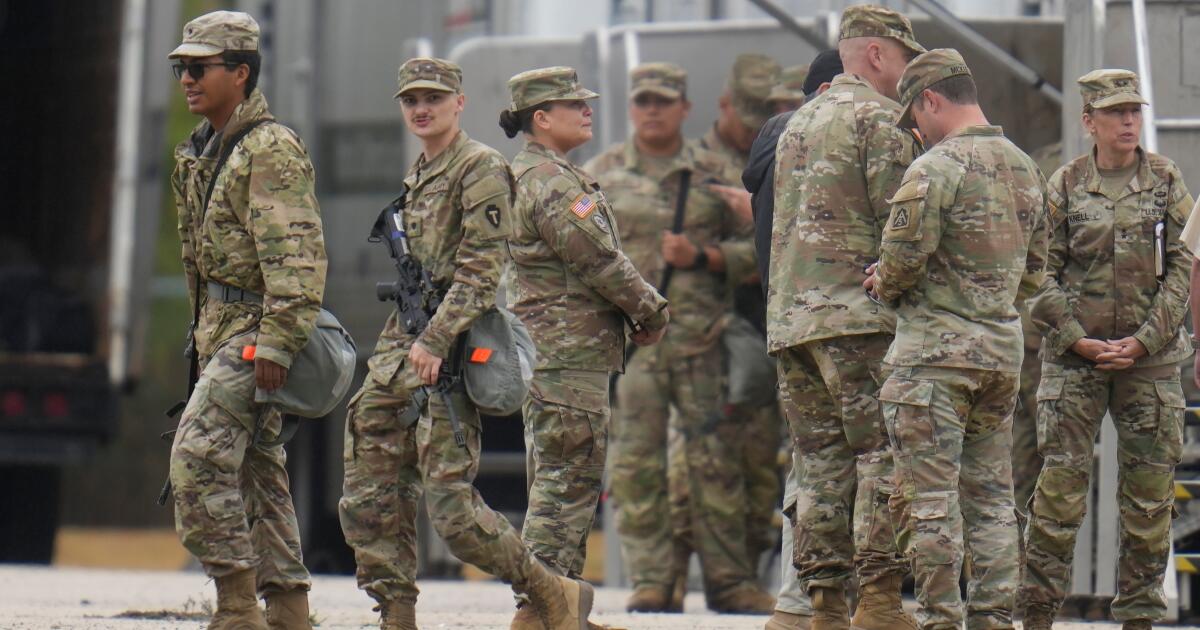URGENT UPDATE: The 9th Circuit Court is urgently re-evaluating its controversial ruling that supports President Trump’s authority to deploy federal troops across the United States. A three-judge panel convened in Pasadena, California, on Wednesday, signaling a potential shift in the legal landscape for military interventions, particularly following the president’s controversial troop deployments in cities like Los Angeles.
This rare judicial review comes as military interventions have become strikingly commonplace in recent months. The judges are assessing the implications of a complex subsection of U.S. law that governs troop deployments—a law that has been the center of heated debates in courts nationwide. The judges had previously ruled in June that the president enjoys “a great level of deference” in determining when protests escalate to rebellion, justifying military responses.
During the session, Judge Eric D. Miller raised pointed questions about the definition of rebellion, emphasizing, “Why is a couple of hundred people engaging in disorderly conduct… comparable to a rebellion?” His remarks indicate a possible reconsideration of the legal definitions that have allowed for expansive troop deployments.
The judges on the panel—Miller, Jennifer Sung, and Mark J. Bennett—are exploring whether the current interpretation of “rebellion” is too broad, especially given that the law invoked by Trump has been used only once in the past 122 years. California Solicitor General Samuel Harbourt argued that the term “rebellion” has been misapplied, claiming it could encompass any form of resistance, raising alarm about the breadth of presidential power.
The panel’s review comes on the heels of a heated decision made earlier in the week by another 9th Circuit panel, which upheld the deployment of federalized troops in Oregon, further complicating the legal landscape. This division among judges highlights the ongoing judicial conflict over the president’s military authority, with implications that could affect future troop movements across states.
Experts warn that even a Supreme Court ruling on the matter might not resolve the legal uncertainties surrounding troop deployments. The administration has suggested that there are no limits on where troops can be sent or how long they can remain under presidential control. This raises critical questions about the president’s unilateral powers and the legal boundaries of federal military intervention.
The legal discourse surrounding these troop deployments is intensifying, with various judges expressing conflicting views. The 7th Circuit has previously ruled that “political opposition is not rebellion,” countering the broader interpretations that have emerged. As legal battles unfold, the ramifications of this case could shape the future of domestic military engagement.
As this urgent review progresses, many are watching closely to see how it will impact the nation’s approach to protests and the balance of power between federal authority and state governance. The outcome could redefine the parameters of military engagement in domestic affairs, with significant implications for civil liberties and public safety.
Stay tuned for further updates on this developing story.
